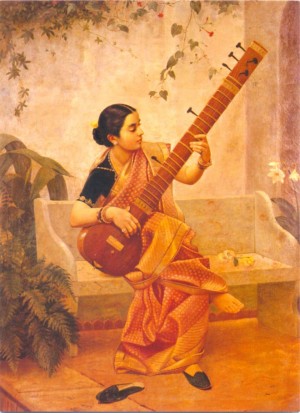
“Does my sexiness upset you? Does it come as a surprise that I dance like I have diamonds at the meeting of my thighs?”
Maya Angelou
Through dance and song we explore deep and intricate connections between our lives and issues related to sexual desire, pleasure and agency. In a way, music and dance are journeys of self-discovery through which we seek to understand our complex connections to the chaotic cultural narratives around us. In addition, several music and dance pieces have been known for their subversive potential as they question hetero-normative ideas in society.
Our articles this time focus mainly on South India, as music and dance is a vast area to cover.
Under the Issue in Focus section, we have a thought-provoking article written by Shweta Krishnan based on an interview with dancer, performer and cultural activist Anita Ratnam and a viewing of the Malayalam film Vanaprastam. The article walks us through important connections between dance, sexuality and gender in two South Indian dances, Bharatanatyam and Kathakali. Also, the Interview with Anita explores the dance form of Bharatanatyam as a contemporary art form, as well as certain lessons to learn from theatre. Anita also speaks about cultural activism where she mentions that she tries to address societal issues through the practice of dance and theatre, as well as her own work as an artist.
Music and dance are art forms that often become intimately connected with the person hood of the performers. Very often the dances and the songs become an extension of their very being.
Isadora Duncan once sa
On another related note, poetry is very often a part of musical expression and has been an integral part of classical and folk songs. In the Voices section, Vasugi Kailasam writes about female poets who have found a voice for female desire within a patriarchal, caste-dominated Tamil culture. Anubhav Gupta tells us about India’s first audio album sung by transgender women, called ‘Songs of the Caravan’. It is a unique album in nature and scope, where, for the first time in India, nine transgender people from all over India have come together on a professional platform to sing, celebrate and establish their voices not only as professional artistes and singers but also as bold and spirited individuals.
In the Reviews section, Jasmine George takes a critical look at The Snow Dance, arguably the most famous part of the film Memoirs of a Geisha, and explains how the Geisha practices are actually related to an expansive understanding of sexuality. Through the subtle movements of The Snow Dance, the Geisha performs ‘her femininity,’ and in this article Jasmine unpacks this ‘performance’ of gender, attempting simultaneously to free it from the lens of Hollywood. Lekha Sridhar reviews Nina Paley‘s film Sita Sings the Blues (2012). She emphasises how the story of Sita from the epic of Ramayana is told via traditional animation and Rajasthani artwork. The film portrays Paley’s coming to terms with the end of her marriage and how Sita’s travails mirrored her own.
It has been found that music and dance forms, no matter how antiquated or mundane in their origin, always evolve into contemporary aesthetic art forms. Sometimes they tell us a story with every movement spelling out a particular mood and at other times, the music and dance forms are the point in themselves. Anubhav’s article for the Hindi section, gives us information about the music album ‘Songs of the Caravan’.
The Video section features a short documentary on Begum Akhtar’s life. Akhtar, popularly known as Mallika-e-Ghazal (Queen of Ghazals), might not have identified as a feminist, but her Ghazals and Thumris have been examined for their feminist value. She lived a life where she boldly negotiated her position and choices in the patriarchal world of music.
In Brushstrokes, Nikzad Zangeneh has compiled some images which show us the unique style of Persian Dance which is a dance form from Iran, Afghanistan and Tajikistan. Persian dance is considered a ‘feminine’ form because of its subtle movements, but it is performed by both men and women.
The Innovations Corner tells us about a new app that can help couples learn dance steps easily and in the process, build on their intimacy.
This month we are introducing a new corner for Regional Cinema where we feature a song ‘Margazhi Poove’ from the movie May Madham (1994), in which a young woman sings of freedom, independence and desire.
We are also introducing another interesting corner this month called Fact Box which shall feature interesting facts relating to the theme of the month.
In TARSHI’s Corner, we have results from the survey we took last month! We thank all those who took the time to respond and tell us how we can improve In Plainspeak!
But that is not all we have for you this month! We take this opportunity to introduce you to In Plainspeak‘s newest member, Aindrila Chaudhuri.
We are also featuring some content in the Blog Roll section. These articles are sourced from other blogs and websites that are relevant to the theme of ‘Music, Dance and Sexuality’.
In news related to the theme of the month, we wanted to also inform you about the ‘The Journey of Dancing Queens’ performance by a Mumbai Based LGBTQ dance troupe called the Dancing Queens to be held during the Mumbai Pride Festival in January 2015. More details can be found in the Facebook page for the event.
Happy Reading and best wishes for a wonderful 2015! Stay with us !
The TARSHI team